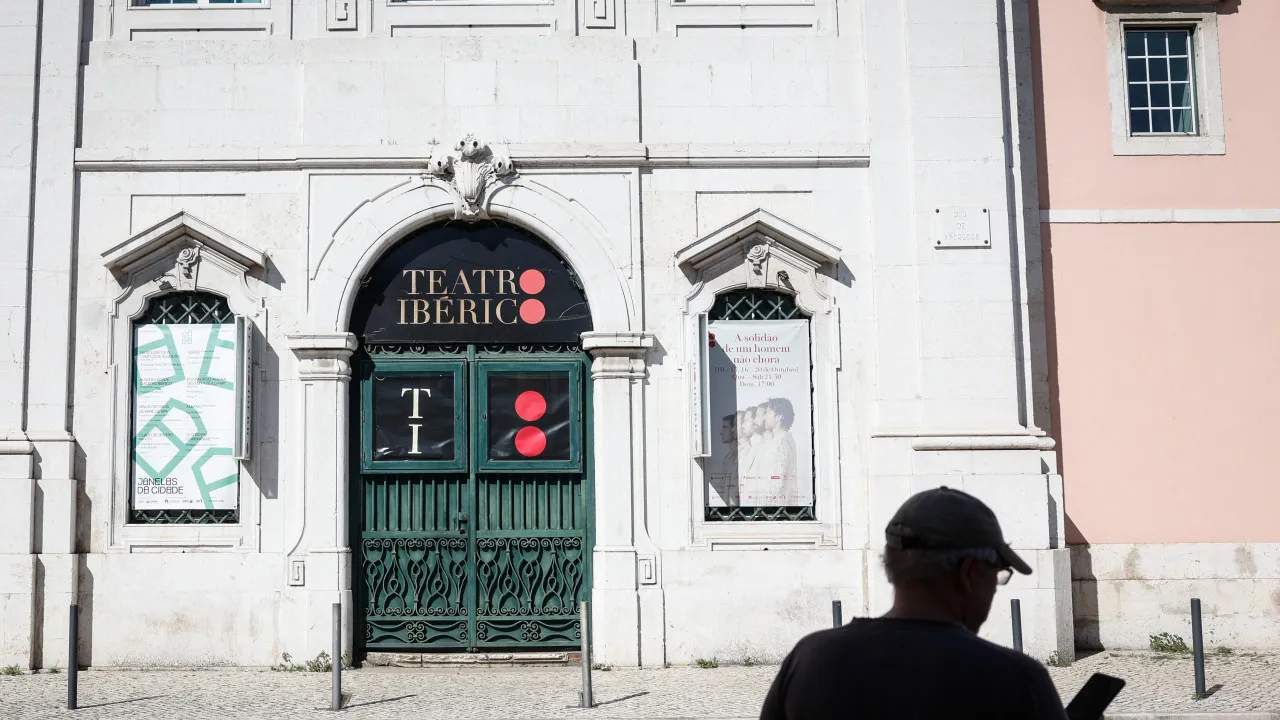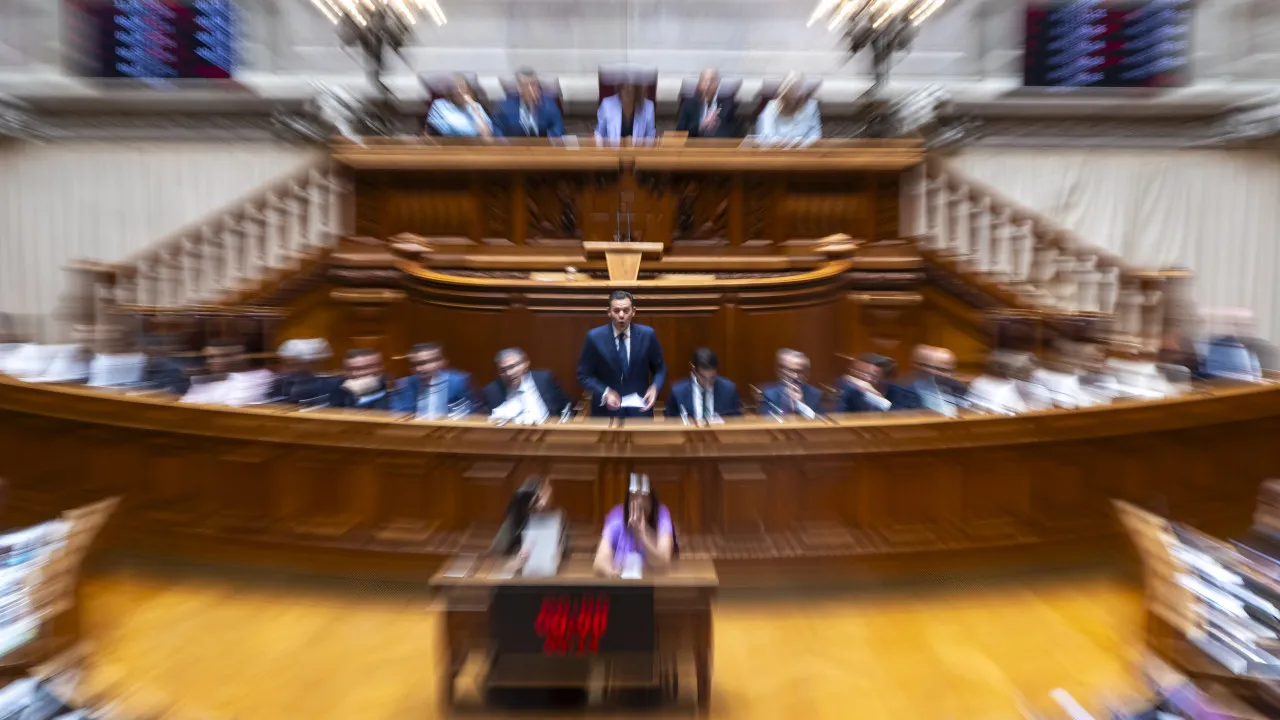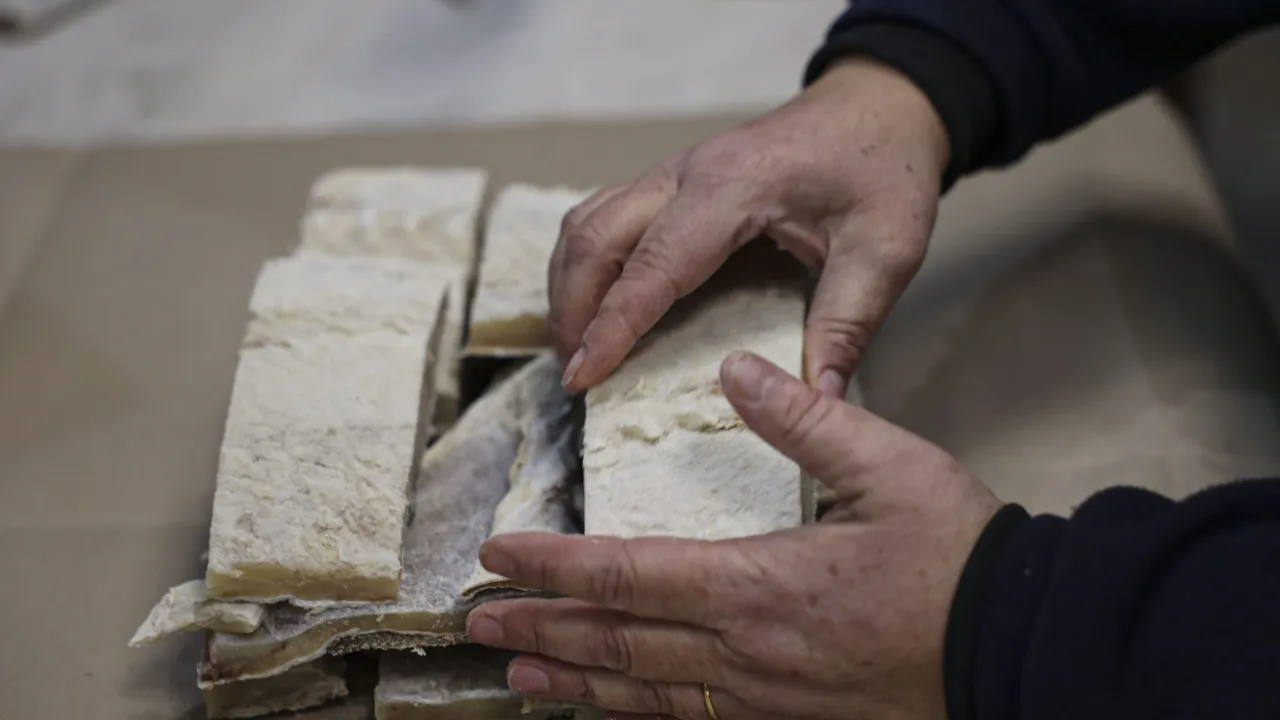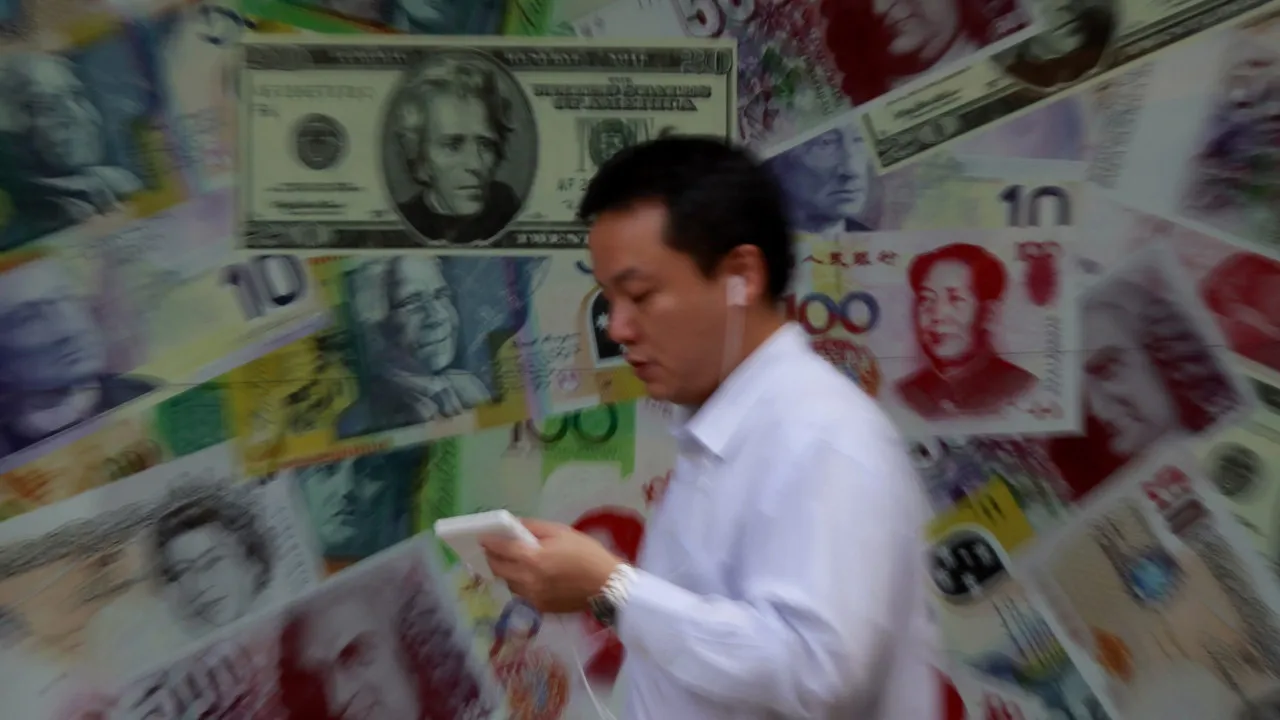Although he admits to having always been accompanied by solitude, Adalberto Faria only tasted its bitterest flavor with the death of his mother, who was “the center” of his life. From this pain emerged ‘Son of a Mother – Solitude and Loss in the 21st Century,’ which proposes to analyze nothing less than “the impact of absence, longing, and human fragility.”
In the first part, the author delves into his own experiences of solitude, mourning, and humanity—reflecting on the Covid-19 pandemic and the suffering caused by the war in Ukraine. In the second part, he expands the conversation with the help of individuals such as Bárbara Reis, Mário Dorminsky, and António Barreto.
As he mentioned in a conversation with Notícias ao Minuto, “we can have everything and even be loved, yet feel so lost and alone.” However, in Adalberto Faria’s view, “we have to live one day at a time and learn to handle that feeling so as not to be overwhelmed by the cruel splendor of its impact.”
Solitude has always accompanied me, for very personal, private reasons. But it never had the baroque dimension it gained after I lost her. There is no signifier or sign, nor meaning that describes the nature of this solitude.
What motivated you to address not only the mourning for your mother but also the latent solitude in the society we live in?
I accompanied her after the divorce from the great and only love of her life, my father. I stayed with her through illness and after her suicide attempt when she felt betrayed. I was with her during the relapse until her death. I was educated and raised in the sanctity of the meaning of motherhood, and in addition to all this, because I was also morally obliged… Since I have no children, and we always lived together, or one above the other’s house, it is obvious that my mother was the center of my life, the sun, the moon, the compass. What I lost! Solitude has always accompanied me, for very personal, private reasons. But it never had the baroque dimension it gained after I lost her. There is no signifier or sign, nor meaning that describes the nature of this solitude. Rationally, I accept the loss. Emotionally, not yet.
You mentioned feeling a certain guilt about your mourning, when there were people around you with problems you considered more serious, and even facing the war in Ukraine. Nevertheless, mourning tends to place us ‘at the center of the world.’ How did/do you deal with these conflicting aspects?
I understand your question very well. It’s very pertinent and intelligent. My pain dragged along guilt because just imagining that I could mourn my mother decently, as I wished, mystically, and with the tragic-Hellenic-Hollywood context of flowers, rituals, the sea, the storm, the religious and public participation, while others were thrown into mass graves, indistinct, in pieces, or currently, with children crushed and lost in Palestinian rubble, all this brings me a kind of guilt for feeling my pain is colossal.
But, noticing what happens with Covid-19 victims in hospital contexts in 2020 and 2021, or in the Ukrainian or Palestinian wars, I have that feeling that I should contain my lamenting… However, longing and the pain of absence do not stop just because I feel guilty for having had the right to a family member with a more dignified death.
It is not compatible to be mortally wounded, and have alongside us others with soothing words, or clichés. The pain and spirituality of the moment prevented me from being with anyone. At most, with one person only.
You also confessed not attending your mother’s funeral. Why? Did you see it as a mechanism to deal with—and, in a way, ignore—the pain? I ask because, generally, seeing the body and going through those rituals helps accept the death of a loved one.
You might be right. Perhaps if I had seen her enter the bowels of the earth, today I would have emotionally accepted that I won’t see her until eternity. However, her death was, perhaps, the climax of despair and anguish, sadness, fear, emptiness, and solitude that I think I have had my entire life, and even in the one to come. I do not deny that I was, unconsciously, influenced by my childhood best friend, Joaquina Silveira Teixeira. She loved her only husband so much that she fought for him, in the country and abroad, in the battle against the cancer he suffered from. Two cancers, in fact, within a seven-year interval. For each year he lived with a quality of life, she went to Fátima on foot and slept next to him until the moment he expired. Yet, on the day of his funeral, she did not want to see him buried.
It may seem paradoxical, but I understood her, and her limitless love for her ever-present husband and partner. It is the noblest feeling one can have: being alone, mourning in every part of our body, soul, and feelings, a loss of these dimensions. It is not compatible to be mortally wounded, and have alongside us others with soothing words, or clichés. The pain and spirituality of the moment prevented me from being with anyone. At most, with one person only. However, I only did it when I knew my brother would handle everything. Otherwise, I would have personally buried my mother with my own hands, if there was not a single person to do so! Do you understand? It is not about avoiding pain; it’s about making it something sacred, mine, and not exposing it on that day, not vulgarizing my suffering, for it is sacred.
Every month I hold a mass in her favorite chapel, and on every annual anniversary of her death, I light up all the lights in her house all night and day, and place flowers and candles all around the house, so now, indeed, people can remember her. On the day of death, and only on that day, I care not for social spectacle. Generally, when I visit someone whose loved one has died, I do it before or after, never on the day of the funeral. I detest the theater of funerals. No one ever shows up before or after. Only on that day. That, yes, is a ‘scandalous mortal sin.’
We lost the only historical moment to update Christianity, spirituality, and goodness in each of us. There won’t be another opportunity for silence to redeem ourselves and build a more idyllic world anytime soon. It’s disheartening that we threw such a historical opportunity out the window.
You also argued that contrary to what was proclaimed, the pandemic did not make us more empathetic, but rather more selfish and cynical. How so? Could this not also be a manifestation of the collective mourning we went through, somewhat alleviated by social media and new technologies?
At this point, I do not agree with you at all. Not at all. Domestic violence skyrocketed. Divorces and separations after the pandemic increased. And the world, in general, worsened in all parameters—social, sociological, economic, and political. The Russian-Ukrainian war didn’t even ‘allow’ the pandemic to end; it started while we still wore masks. The demand for vaccines was fierce, and in both Portugal and abroad, scandals of favoritism and queue jumping for doses and priority groups were constant. Not to mention politicians and people with significant responsibility who didn’t comply with lockdowns and organized large private parties. There was a sense in the air that people didn’t know how to live in the silence and seclusion of the moment. The scenes and metaphorical attitudes of ‘toilet paper’ and other goods denoted what the true human priorities were (as would be confirmed by the blackout on April 28).
Being alone and digesting not one, but two tragedies that had befallen me, two months apart—the loss of my mother and the pandemic—by mid-2021, I began to understand that people were desperate for the same old life, that is, as unrestrained consumers. And worse, as if all that were the true meaning of life, the core of freedom, of happiness. And there I concluded, and thought I wouldn’t end up being so right, that we would emerge from the pandemic absolutely worse and more horrible as human beings than we were before.
Wars erupted, leisure and obsession with profit increased, the housing crisis, consumption, inflation, indifference towards our fellow human beings. Doctors went from bestial to beasts, according to the population! We lost the only historical moment to update Christianity, spirituality, and goodness in each of us. There won’t be another opportunity for silence to redeem ourselves and build a more idyllic world anytime soon. It’s disheartening that we threw such a historical opportunity out the window.

I’ve got the impression that you are quite critical of social media in that they promote societal isolation. Is that, in your view, the basis of loneliness in the 21st century?
The first time I had a social network was in May 2010, at the house of my friend and college colleague, Cláudia Jacques, in Foz, Porto, who, like me, lived very well and happier without Facebook or Instagram. It was a friend and a guest at our weekly dinner who suggested and explained how the then nascent Facebook worked. From there, I was always present on social networks, and Cláudia even more so!
I am critical in the sense of their misuse, their replacement in affections, and the drowning of newer generations in these same social networks. They are very useful, but they have decimated many human facets of our daily life. Children are entitled to a childhood, and social networks block the beautiful and unique innocence of that temporal moment in our lives: childhood. Only after two decades can we start to observe and conclude how negative social networks can be. We all know it. Valuing life by the likes and friendship by the number of ‘facefriends’ is not only little, sad, but dangerous. The more mature can distinguish reality from verisimilitude, but most teenagers cannot.
The second part of the book is dedicated to conversations with various people about mourning, solitude, and the impact of social networks on society. What surprised you most? And what surprised you least?
That it is a feeling that cuts across all socio-political and cultural classes, and even people with less scholastic or academic trajectory know how to discern the taste of “being by oneself” from the unhappiness of being alone involuntarily. I was surprised that one of the interviewees, whose privacy I wish to maintain, told me that he did not know what solitude was, that he was not aware of that feeling, even though his own mother had committed suicide brutally. It did not surprise me either negatively or positively, but simply because… it completely surprised me with the prompt and sincere answer.
The ‘light’ solitude is like yogurts; it does not cause harm and helps to keep the line. Voluminous solitudes increase the size of the pain and the dimension of despair in the heart. Amorous abandonment can be one of the cruelest.
Another moment was with Dália, the shepherdess who reads and has a beautiful diction and expresses herself like a cultured urban woman, a sensitivity, and contact with animals and nature that delighted me. Her interpretation, her silences, and her contact with the true wild nature of Serra da Estrela moved me.
Now, I throw a question to you that you posed to all the interviewees: solitude or solitudes? And why?
I see you like to ask tough questions! That’s cheating! Yes, solitude is not a singular aspect/occurrence of life, it is very plural. There is solitude that drives a person to move forward in life, the terror of painful and sickening solitude that compels us either to medication or to flee forward, or to create and sublimate situations to stop feeling it, or to seek the other(s).
I went through a brutal, serious period between 13 and 18 years old. Today, I look back and do not know how I survived. I don’t know how! Two neighbors of the same age did not survive. Two pure and beautiful girls committed suicide. I will never forget the face of both and the poetry I read to one at her funeral. ‘Light’ solitude is like yogurts; it does not cause harm and helps to keep the line. Voluminous solitudes increase the size of the pain and the dimension of despair in the heart. Amorous abandonment can be one of the cruelest. I have abandoned and have been abandoned and replaced. It is not easy. And only then did I understand both my father and especially my mother. I learned to know how to lose. At that point, I think I conquered solitude.
How many celebrities died at 27; Janis Joplin, Amy Winehouse, Jim Morrison… Each carried a certain burden of solitude in body and soul. We can have everything and even be loved, and yet feel so lost and alone. Personally, I think I have broken records for all kinds of solitude. I went through them all, and feeling fragile to this day, I cannot have been that strong. Even so, I do not feel vaccinated yet. More resilient, more cunning, and intelligent in dealing with solitude, yes, but it’s like cancer… We have to live one day at a time, and know how to handle that feeling so as not to be hit by the splendid impact it makes. I am a supporter of psychotropic medication, yoga, meditation, physical exercise, traveling, and varied sexual activity. Anything goes to eliminate this inner enemy of ours—the solitude of the 21st century!




